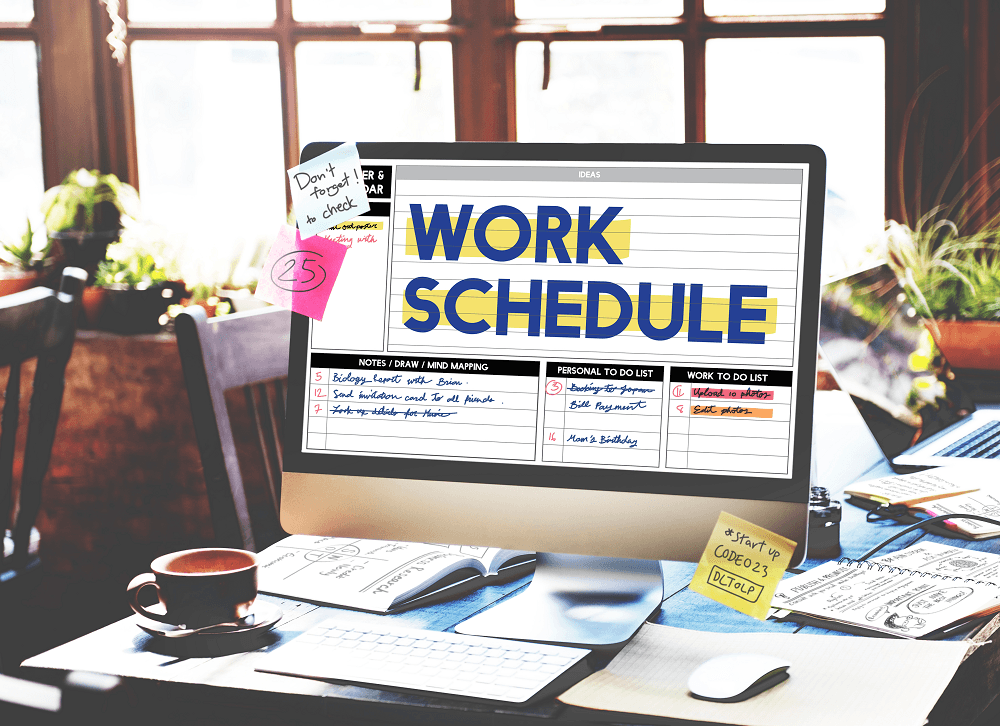Business
Time management and productivity can increase your confidence—here’s how
If you second-guess yourself, it would lower your confidence and even your productivity.

Time management and productivity are both important parts of the business day.Both of these skills enable you to make the most out of your workday and complete everything on your mental to-do list without losing your mind. What most people overlook is that you can also use them to improve your self-confidence. How does your time management affect your self-confidence?
Time Management = Confidence
No matter what industry you’re in, a common complaint is that there just isn’t enough time in the day to finish all your assigned tasks. This lack of time management is one of the biggest causes of workplace stress and can lead to irritability, fatigue, difficulty focusing and loss of confidence.
The trick to reducing that stress and improving your self-confidence is to employ good time-management strategies. If you don’t know where to start, try doing the following:
Delegate — Don’t take it all on your shoulders. If you’ve got people you can farm out a portion of a task to, do it.
Plan — Take some time at the beginning of your day to plan out what you need to accomplish.
Expect — Specifically, expect interruptions. It’s inevitable if you work with other people, so plan to be interrupted. Just don’t let it throw your whole day off.
Sign — Literally hang up a “do not disturb” sign if you have to finish something without being interrupted.

To-do lists tend to grow longer and longer, so it’s better to make an appointment book instead. (Source)
Improve — Look for ways to improve work processes, to make your job easier or more efficient or simply to make your life a little bit easier during the day.
Schedule — Don’t answer every ringing phone or blinking notification. Instead, schedule office hours for phone calls and specific times for email and message responses.
Break — Take breaks frequently. Studies have proven that taking frequent short breaks helps keep you focused, makes it easier to learn new information, and improves productivity.
Appoint — Don’t write a to-do list. Instead, use an appointment book to make appointments with yourself. To-do lists tend to grow and grow until they become to-do novels. It’s easier to keep appointments, even if they’re with yourself.
Block — Unless you’re using social media as part of your work, block it. The same rule applies to any distracting websites while you’re working. Save those for break time.
Now that you’ve got time management down, you’ve probably noticed how managing your time wisely and completing your projects on time have helped improve your confidence. The next step is to use that confidence to improve your productivity.
Confidence = Productivity
How does confidence help increase productivity? By eliminating or at least reducing doubt. If your confidence is low after you complete a task, you tend to second-guess yourself and ask these questions: Did I do this right? Can I make it look better before it’s due?
Second-guessing yourself is where you sabotage both your confidence and your time-management skills we’ve already discussed. It’s the same strategy you’ve probably heard since grade school for taking a test — don’t second-guess your answers, because you might end up changing your correct answer to a wrong one. The same train of thought applies in the workplace.
Confidence is an integral part of your daily productivity. It’s the thing that allows you to finish a job, be confident in the job you did, and move on to your next project.

If you want to be completely productive throughout the day, you should block any website that can distract you. (Source)
Productivity = Confidence
Once you get that productivity thing under control, you’ll notice your confidence growing. But wait, didn’t we just say that confidence is the thing you need to improve productivity?
Yes. It’s a fantastic cycle that keeps improving the more times you make it around the circle.
Confidence improves productivity — you’re confident enough to finish your work the first time without having to second-guess anything.
Productivity improves confidence — you know you can do it, so every completed job or productive day provides an added boost.
And around and around it goes. You might think it puts you at risk of becoming overconfident, and no one likes an overconfident jerk, right?
As it turns out, overconfidence can actually be a good thing. It doesn’t have to be synonymous with cocky — it can be a great tool to help you appear competent even when you don’t feel that way, as well as help you improve your social status both in and out of work.
Both of these things help further fuel your confidence, which, in turn, improves your productivity and time-management skills.
Time management and productivity are both skills you should take the time to hone — they make you more successful in the workplace and are essential tools for building your confidence. The more productive you are, the more confident you’ll become.
—
DISCLAIMER: This article expresses my own ideas and opinions. Any information I have shared are from sources that I believe to be reliable and accurate. I did not receive any financial compensation in writing this post, nor do I own any shares in any company I’ve mentioned. I encourage any reader to do their own diligent research first before making any investment decisions.

-

 Crowdfunding1 week ago
Crowdfunding1 week agoSpain’s Real Estate Crowdfunding Boom: Opportunity, Access, and Hidden Risks
-

 Fintech4 days ago
Fintech4 days agoDruo Doubles Processed Volume and Targets Global Expansion by 2026
-

 Impact Investing2 weeks ago
Impact Investing2 weeks agoIntesa Sanpaolo’s 2026–2029 Growth and ESG Strategy
-

 Business1 day ago
Business1 day agoTopRanked.io Weekly Affiliate Digest: What’s Hot in Affiliate Marketing [Health Trader Affiliate Program Review]

























You must be logged in to post a comment Login